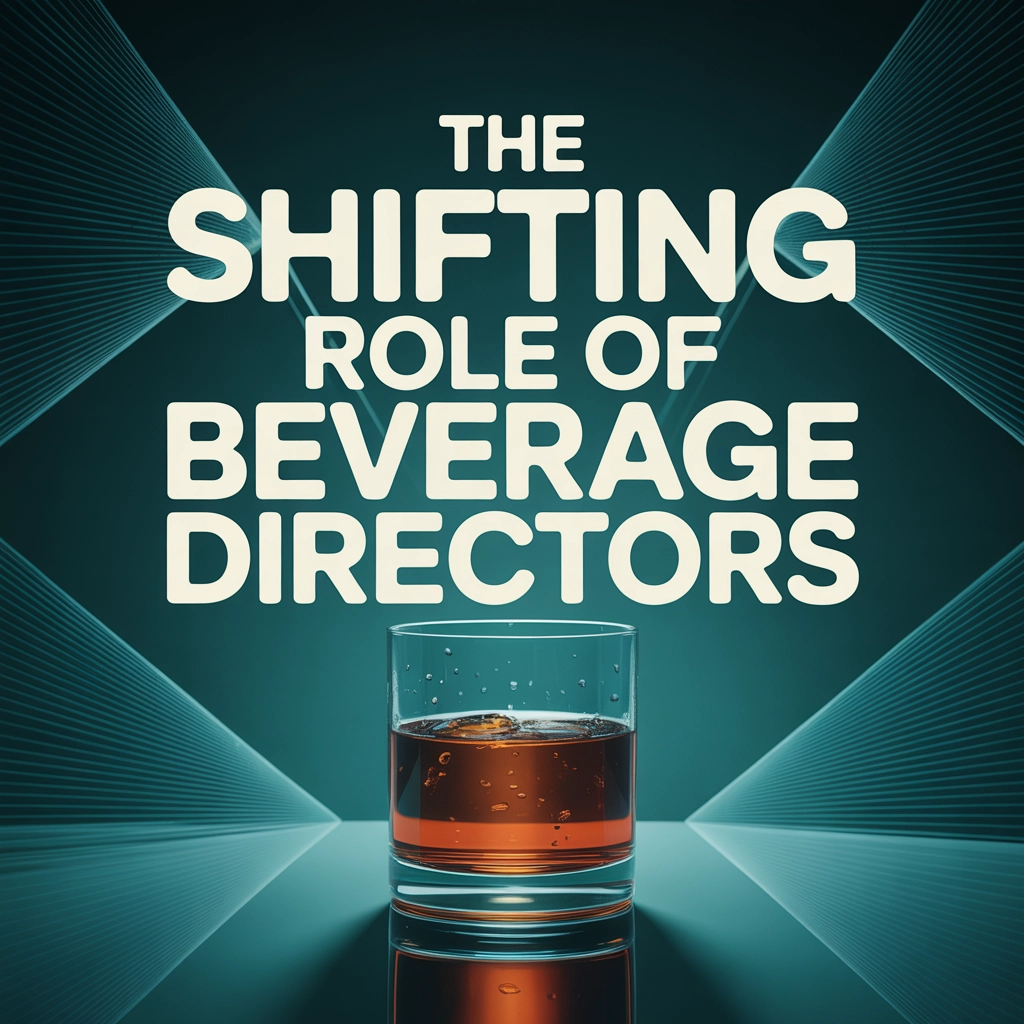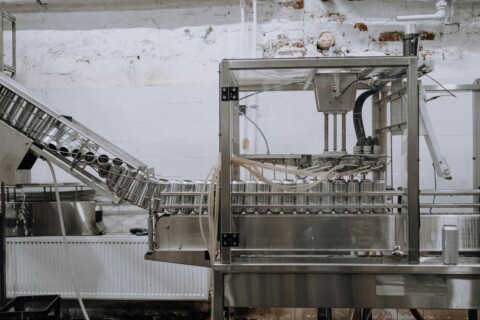The hospitality industry is in a period of rapid change, challenging long-held roles and expectations at every level. Nowhere is this more pronounced than in the evolving responsibilities of beverage directors. What was once a specialized, product-driven role has morphed into a nexus of creative leadership, financial acumen, and cross-departmental strategy. For modern beverage directors, adapting is not optional—it's essential for career longevity and organizational impact.
The Push Toward Role Consolidation
Historically, beverage directors operated in a distinct lane, managing beverage programs, building supplier relationships, and leveraging their expert taste to create standout menus. Yet, economic pressures—especially staffing shortages and inflation—have fueled a trend toward consolidating leadership roles in hospitality. Increasingly, properties are merging beverage director and executive chef duties, particularly in boutique hotels and smaller groups where resource maximization is critical.
This new hybrid role demands a dual mindset: the creative dynamism of a culinary lead and the operational precision of a seasoned manager. While some see this as a temporary adaptation, it’s clear that organizations seek leaders with blended skillsets who can ensure both efficiency and a cohesive vision across food and beverage programs.
Key takeaway for aspiring beverage directors: Expanding your scope beyond the bar enhances your value and career prospects. Understanding back-of-house operations, procurement, and menu engineering can position you as an indispensable asset in this new landscape.
Financial Accountability: Beyond Great Menus
For today’s beverage directors, creative curation is just one part of the equation. Operators increasingly expect their beverage pros to drive topline revenue and optimize net profitability. Building a list of crowd-pleasing signature cocktails or securing exclusive wine allocations is valuable—but so is ensuring those initiatives translate to real dollars.
Modern beverage directors are tasked with developing profitable drink programs, training staff for premium upselling, and implementing inventory systems that minimize waste and dead stock. Hitting margin targets and controlling pour costs are now as critical as delivering unique guest experiences. Mastery of point-of-sale reports, forecasting tools, and data analysis is no longer a bonus—it's a core competency.
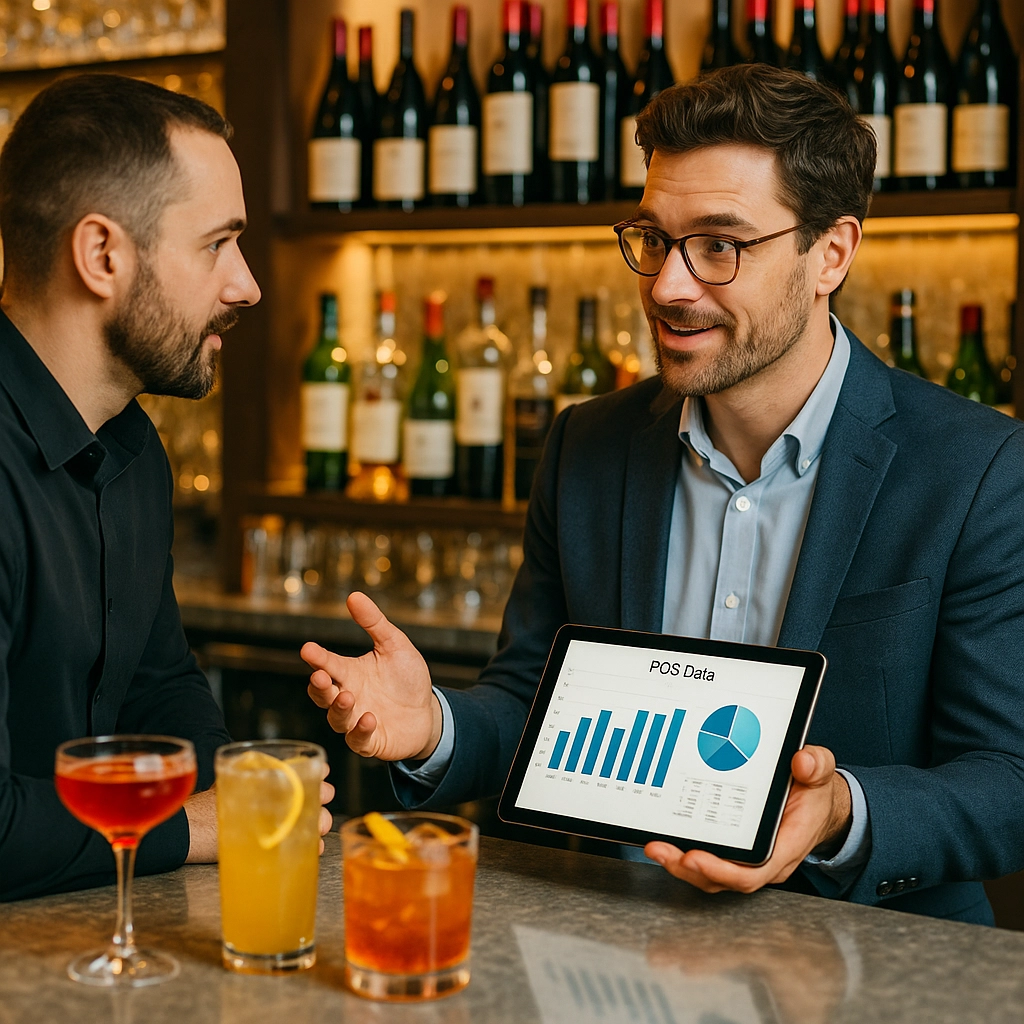
Those who succeed blend creativity with an analytical mindset, proactively identifying cost leaks and rapidly adjusting their offerings according to both performance metrics and shifting guest preferences.
Actionable insight: Strengthen your grasp on the mechanics of beverage cost, menu pricing, and par-level management. Several industry leaders, including those interviewed by Food & Beverage Magazine, emphasize that understanding how to interpret—and act on—sales and inventory data is a defining skill for the next generation of beverage leadership.
Strategic Leadership and Mentorship
Today’s beverage director must be as effective leading teams as developing a world-class cocktail. The role now encompasses mentorship, team building, and ongoing education. Directors are tasked with upskilling bartenders and bar managers in cocktail construction, wine knowledge, guest engagement, and sales strategies.
This expanded leadership focus serves two core purposes. First, it helps build a culture of excellence and retention amid a competitive labor market. Second, it ensures beverage programs can consistently deliver high-quality experiences even when the director isn’t present. Top-performing beverage leaders also foster cross-training and career-growth opportunities, benefitting service teams and the organization as a whole.
Best practice: Institute regular training sessions for staff at all levels, providing accessible, bite-sized lessons on everything from spirits history to upselling techniques. Empower your teams with knowledge and encourage curiosity as part of your workplace culture.
Technology and the Data-Driven Director
Digital transformation is reshaping hospitality, forcing beverage directors to become as comfortable with spreadsheets as they are with shakers. Systems for inventory, ordering, analytics, and vendor communication have streamlined many cumbersome processes, but they also require directors to develop digital fluency.
Beverage directors now utilize data dashboards to track product movement, monitor trends, and inform purchasing decisions. Automated systems can help flag slow movers, forecast demand spikes, and even recommend how to reallocate resources for better returns.
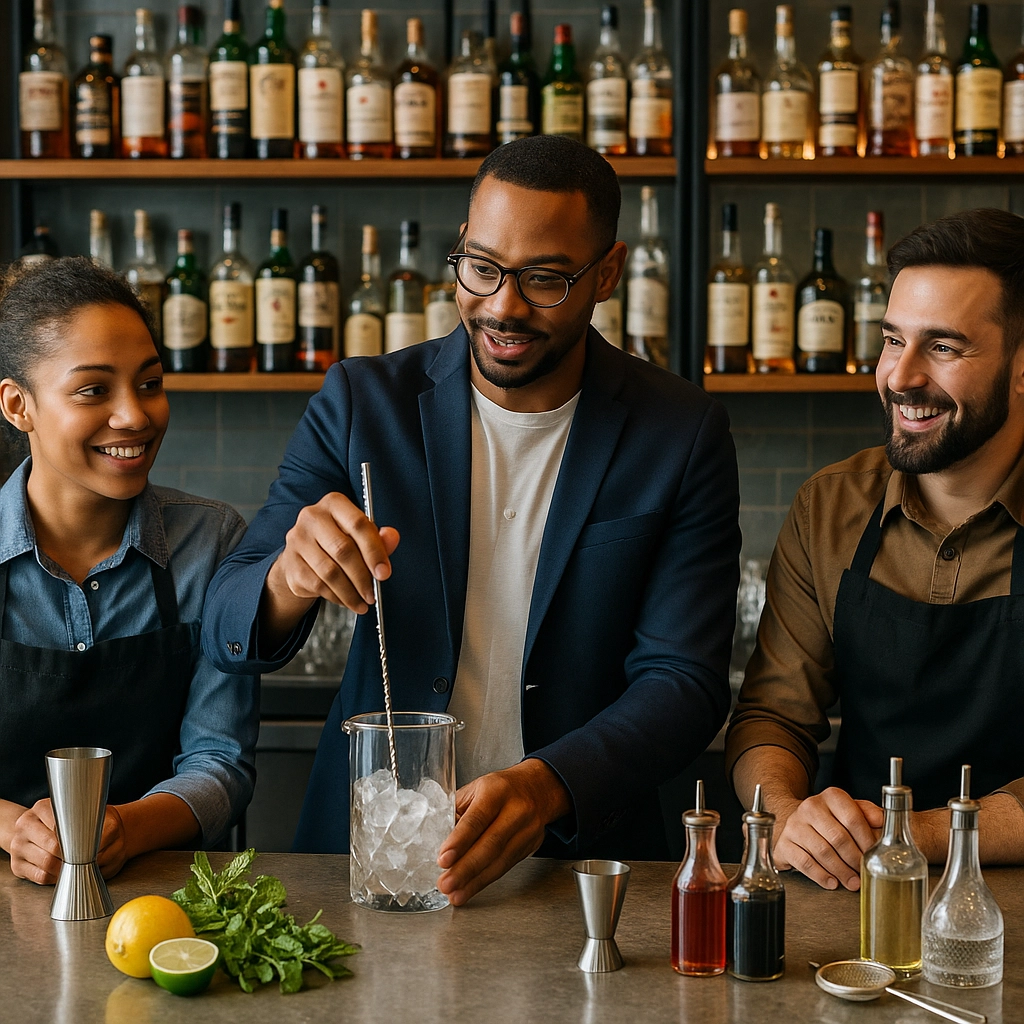
Directors comfortable with these platforms gain a significant edge. Whether integrating inventory software with POS systems or analyzing guest order patterns to refresh menus, a data-driven approach elevates both operational efficiency and the guest experience.
Next steps: Invest time in mastering the technology stack used at your property. If your team uses tools like BevSpot, Partender, or BinWise, become an expert resource. And if your operation is lagging on adoption, advocate for investment: streamlined processes and sharper insights make a measurable impact on the bottom line.
Broadening the Beverage Skillset
Gone are the days when being a wine or spirits savant was enough. The beverage director role increasingly requires business fluency across the hospitality spectrum. The most in-demand professionals are comfortable overseeing operations ranging from bar programs to in-room dining, banquets, and even retail partnerships.
Broadening your skills might involve cross-training in food cost management, vendor negotiations, or event planning. Directors able to pivot between roles—whether launching a rooftop bar, coordinating large-scale banquet beverage service, or optimizing room service menus—actively future-proof their careers.
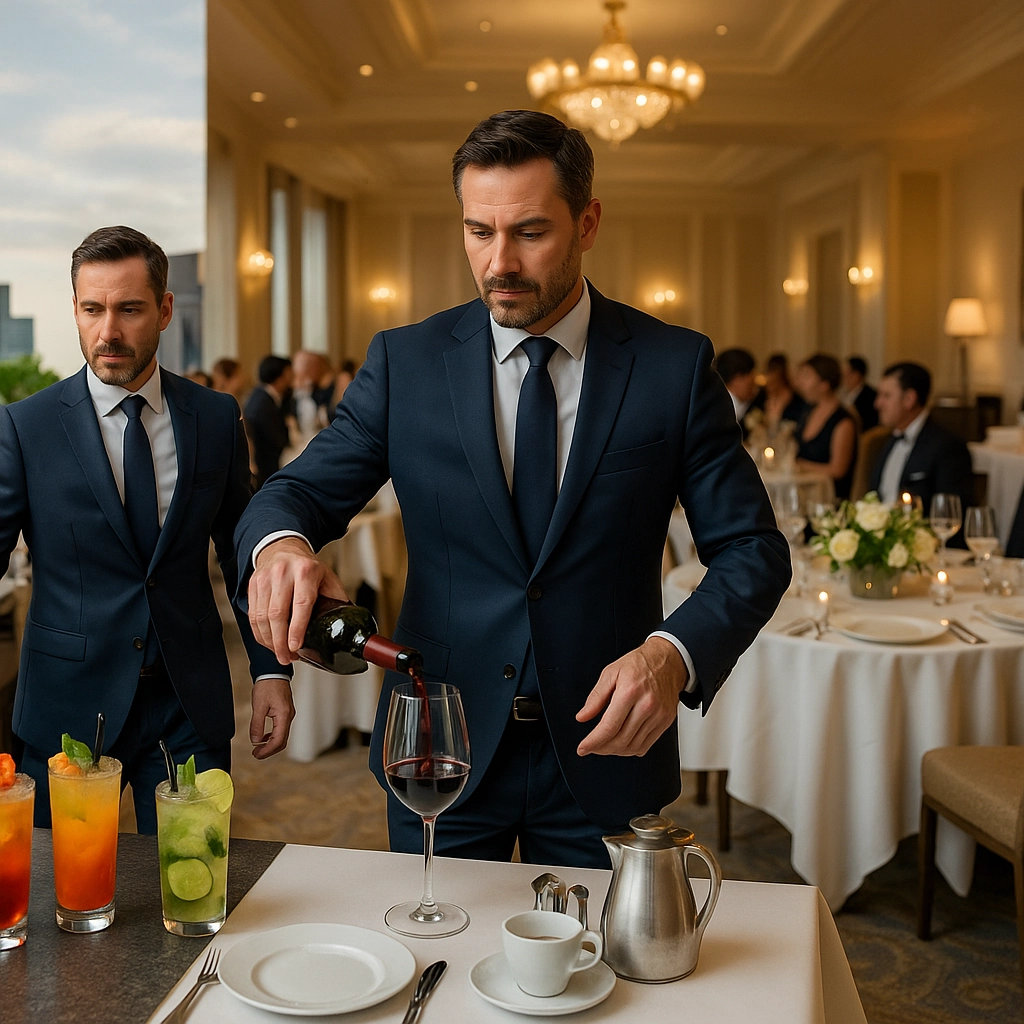
For some, this means pursuing additional certifications, such as those offered by the Court of Master Sommeliers or the Cicerone program. Others focus on operational roles, learning revenue management strategies or exploring culinary management courses.
Pro tip: Network with leaders outside your core discipline to learn what skills drive success across the industry. Read widely, attend cross-functional meetings, and volunteer for projects outside your comfort zone.
Embracing Consumer-Centric Adaptation
With guest expectations and consumption patterns evolving rapidly, beverage directors are increasingly responsible for monitoring emerging trends. Whether it’s the surge in plant-based drinks (see Caliwater’s latest launch), the rise of no- and low-alcohol options, or demand for hyper-local ingredients, directors must blend innovation with operational feasibility.
Monitoring guest feedback, keeping abreast of market research, and maintaining direct communication with regular patrons are now essential tools for staying ahead. Adaptability, above all, defines the beverage director's new remit.
Industry resource: For ongoing insights, follow Food & Beverage Magazine for features on trend analysis, recipe inspiration, and interviews with top creative directors.
The Takeaway: Lead the Evolution
The shifting role of beverage directors signals a broader realignment in hospitality management. Today’s successful directors are versatile, financially astute, team-oriented, and digitally empowered. Their work goes far beyond curating a drink list—they are architects of sustainable, profitable beverage programs that adapt alongside changing guest expectations.
If you’re in the profession or looking to break in, now’s the time to invest in a broader arsenal of skills. Expand your operational knowledge, find your financial edge, embrace technology, and strive for continuous learning with an open mind. The future belongs to beverage leaders ready to innovate—and inspire—the next generation.
What changes have you seen in beverage leadership roles? How are you adapting to new industry demands? Share your thoughts in the comments below or connect with us at Food & Beverage Magazine for deeper dives into hospitality’s most critical trends.
Written by Michael Politz, Author of Guide to Restaurant Success: The Proven Process for Starting Any Restaurant Business From Scratch to Success (ISBN: 978-1-119-66896-1), Founder of Food & Beverage Magazine, the leading online magazine and resource in the industry. Designer of the Bluetooth logo and recognized in Entrepreneur Magazine's “Top 40 Under 40” for founding American Wholesale Floral. Politz is also the founder of the Proof Awards and the CPG Awards and a partner in numerous consumer brands across the food and beverage sector.
This article was produced with editorial oversight and AI assistance to ensure accuracy and depth for hospitality professionals.



